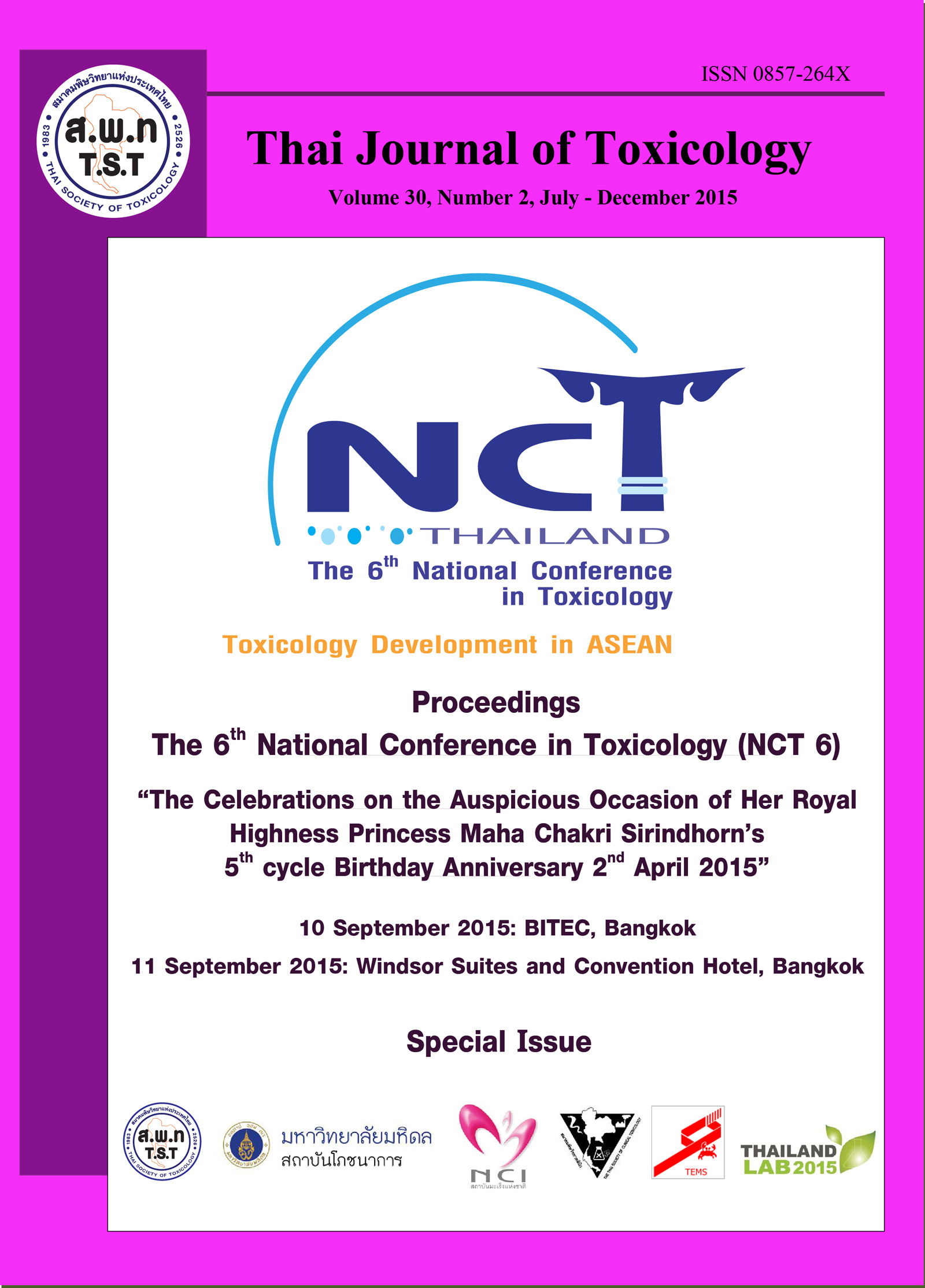Risk Assessment on Inhalation Exposure to Benzene at Gasoline Stations
Main Article Content
Abstract
Benzene is known as carcinogen which can be evaporated from gasoline into an ambient air. Workers at gasoline station mainly expose to benzene through inhalation. The aim of this survey study was to assess risk on benzene exposure via inhalation among gasoline station workers in Muang Khon Kaen district, Khon Kaen province. There were 3 categorized zones as urban, suburban and rural (n = 48). The data collection was conducted by an interview of general information. The sampling was collected by personal active sampling and samples were analyzed by Gas Chromatography (GC-FID). The results showed that benzene concentration was ranged between 0.010-0.050 ppm. Air benzene concentrations were lower than the standard (TLV-TWA) recommended by ACGIH (0.05 ppm). The calculated intake of benzene though inhalation of workers was ranged from 0.015 to 0.076 mg/kg/d. The highest value was in rural zone. The health risk on benzene exposure was found as HQ ranged from 1.25 to 6.33 and the highest value was in rural zone. The risk estimation revealed that the cancer risk level of exposure to benzene among these workers were higher than an acceptable risk level (1 × 10-6) which ranged from 4.09 × 10-4 to 2.08 × 10-. The suggestion is there should be promoting occupational and safety training for workers to be aware of hazard and prevention of exposure to benzene. Health surveillance program by annual monitoring should be provided for these workers.


